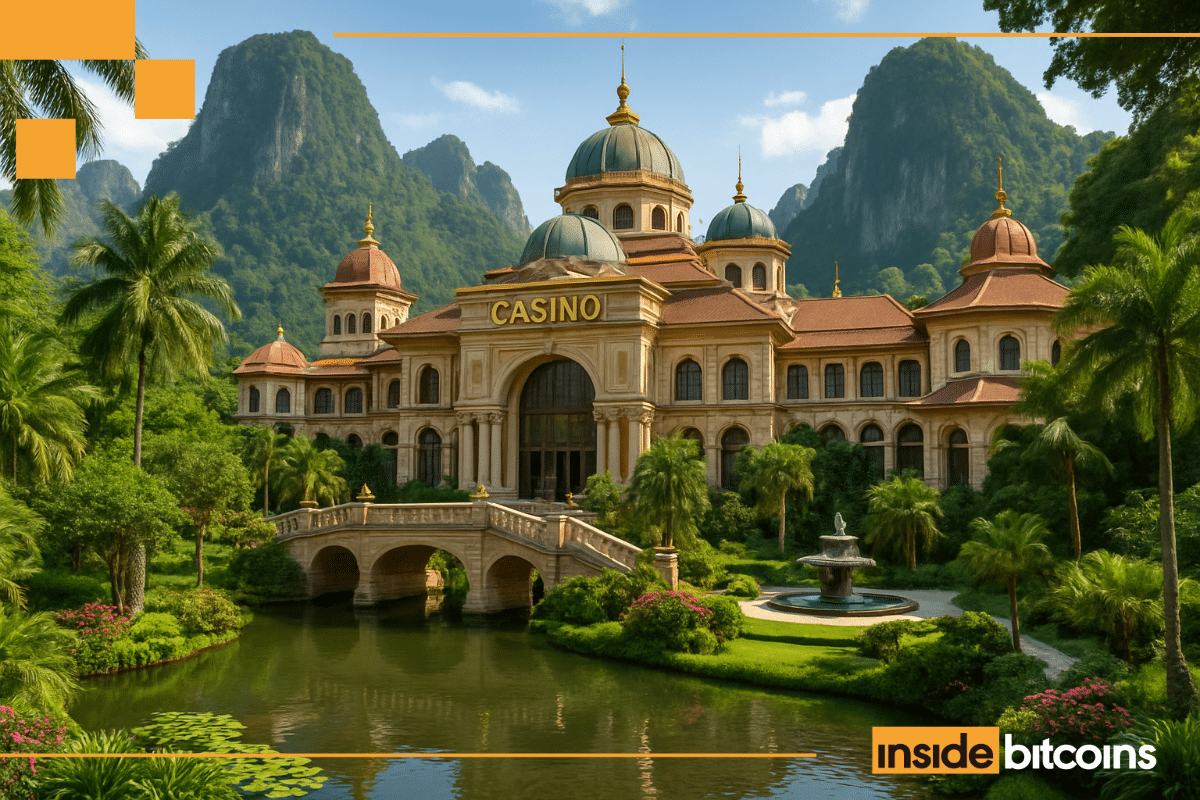Thailand is on the verge of a major economic transformation as it moves closer to legalizing casino gaming, with industry experts predicting the kingdom could quickly emerge as a formidable competitor to established gaming hubs across Asia. With the Thai Cabinet recently approving the second draft of a contentious casino bill, what once seemed like a distant possibility is rapidly becoming reality – and the implications for regional gaming markets could be enormous.
Thailand’s Tourism Renaissance Sets the Stage
The timing for Thailand’s potential casino entry couldn’t be better. The kingdom’s tourism industry has been experiencing a remarkable post-pandemic recovery, welcoming over 35.5 million international visitors in 2024 – a substantial 26% increase from the 28.2 million recorded in 2023. This surge comes after strategic government initiatives, including visa-free entry programs for Chinese and Indian tourists implemented under former Prime Minister Srettha Thavisin’s administration.
Bangkok has captured global attention by being named the world’s most visited city in 2024, outperforming traditional tourism powerhouses like London and Istanbul. According to Euromonitor International, the Thai capital attracted an astonishing 32.4 million international visitors, reflecting growth exceeding 30%.
The hospitality sector has capitalized on this tourism boom, with SiteMinder’s Hotel Booking Trends report revealing that Thailand was the only country globally to achieve double-digit growth in hotel room rates. Average daily rates grew to 5,377 baht in 2024, up over 15% from 4,648 baht in 2023. December 2024 saw rates peak at 6,460 baht per occupied room, marking an 11% increase compared to December 2023.
What makes these numbers particularly significant is that Thailand has achieved this tourism success without the gaming industry that has propelled destinations like Macau and Singapore. As Ben Lee, Managing Partner of IGamiX, pointed out during a recent panel discussion, Thailand’s tourism sector already boasts over 700,000 hotel rooms and generated approximately $47 billion in tourism revenue last year – all without a single legal casino.
Industry Experts Sound the Alarm for Established Markets
The potential for Thailand to disrupt Asia’s gaming landscape was a central focus at a recent panel hosted by the Macau Rui Cunha Foundation. The FRC/MBtv Debates series, titled “Higher Stakes: Macau’s Gaming Industry amid Rising Regional Competition,” brought together several industry heavyweights to discuss the implications.
Operators want a footprint there to protect market share from competitors
“The Thai gaming market has huge potential,” emphasized Ben Lee during the panel. “Even if it’s not just about tapping into that potential, it’s a defensive move.” He added that operators would desire a footprint in Thailand to protect market share from competitors.
The session, moderated by José Carlos Matias, Director of Macau Business and Macau News Agency, featured insights from José Duarte, Economist and Macau Business Senior Analyst; Niall Murray, Chairman of Murray International (Macau); and Rosalind Wade, CEO of Winna Media.
Lee didn’t mince words about Thailand’s potential impact on the regional hierarchy: “Without a doubt, they would very quickly become the number two gaming jurisdiction in the world, and they would give Macau a real run for its money.”
Casino Giants Already Positioning for Thai Entry
According to panelists, established gaming corporations like Las Vegas Sands and Melco Resorts are exceptionally well-positioned to capitalize on Thailand’s market opening. Their experience navigating complex political environments and operating large-scale integrated resorts gives them a significant advantage in what will likely be a competitive licensing process.
“Melco, for instance, has the biggest international footprint among Macau’s operators, from Cyprus to Manila and soon Sri Lanka. They’ve also shown a strong commitment to non-gaming amenities, which gives them an edge,” Lee noted during the panel.
Industry insiders suggest that preliminary discussions are already underway regarding licensing, with three permits potentially being issued for outlying provinces including Chonburi, Chiang Mai, and Phuket. Additionally, two more licenses could be reserved specifically for Bangkok, creating five major integrated resort zones across the country.
Decades in the Making: The Long Road to Thai Casinos
For those closely following Thailand’s gaming ambitions, the current momentum represents the culmination of years of behind-the-scenes preparation. Niall Murray highlighted that this isn’t a sudden development but rather a long-term project championed by influential figures including the powerful Shinawatra family.
“This has been in the works for years,” Murray explained during the panel. He added:
Back in 2008, one of Thailand’s prime ministers flew a famous casino architect around the country to scout locations. These big family conglomerates have been preparing ever since.
The groundwork hasn’t been limited to conceptual planning. Significant infrastructure development, particularly in the Eastern Economic Corridor (EEC), appears strategically aligned with future integrated resort locations. The EEC project, covering 13,000 square kilometers across three eastern provinces (Rayong, Chonburi, and Chachoengsao), has been established as a development initiative that lies at the heart of the government’s Thailand 4.0 scheme.
Murray also revealed revealed that plans to set up transportation within the EEC are well underway:
The Eastern Economic Corridor, linking three major airports with high-speed rail, is already set up. Families behind those projects are the same ones positioning for integrated resorts. As soon as the law passes, you’ll see incredibly rapid movements.
Infrastructure Ready to Support Mega-Resorts
The Eastern Economic Corridor represents Thailand’s most ambitious infrastructure development initiative in decades, designed to transform the eastern provinces into advanced industry and innovation hubs. A high-speed rail link connecting Bangkok to the EEC area is under construction and expected to be completed in the near future. This transportation network would provide seamless access for both domestic and international visitors to future integrated resorts.
The EEC has been deliberately designed as a “regulatory sandbox” to facilitate businesses and enhance the country’s competitiveness. This regulatory flexibility could prove invaluable for gaming operators navigating Thailand’s new casino landscape.
Beyond transportation infrastructure, conceptual plans for Thailand’s integrated resorts appear exceptionally ambitious. “The proposals from the old downtown shipyard area to a mega-strip of integrated resorts have been on the table for over a decade,” Murray noted during the panel. Some concepts under discussion include massive resort complexes featuring casinos alongside medical tourism hubs, racecourses, and entertainment districts.
Thailand’s Competitive Edge: Diversity of Tourism Offerings
What particularly concerns established gaming markets is Thailand’s already robust and diverse tourism ecosystem. While destinations like Macau still struggle to diversify beyond gambling and day-trippers from mainland China, Thailand offers a comprehensive tourism experience.
“Thailand’s tourism is already incredibly diversified, unlike Macau, which still depends heavily on mainland Chinese visitors,” Murray pointed out. “Thailand had close to 36 million visitors post-pandemic, offering everything from jungle adventures in Chiang Mai to beach resorts and urban nightlife. They’ve got space, reasonable hotel rates, and extended stays – everything Macau struggles with.”
This diversity is reflected in visitor statistics, with SiteMinder reporting that foreign guests accounted for 77% of total hotel check-ins in Thailand during 2024, well above the global average of 48%. Additionally, travelers in Thailand booked stays further in advance, with the average lead time reaching 27 days – the longest in Asia.
The kingdom also ranked fifth globally for the longest stays, with over 15% of bookings lasting three nights or more – higher than the global average of 11% and trailing only Portugal, Colombia, Mexico, and Spain.
A Different Scale: Thailand vs. Singapore Models
Economist José Duarte provided crucial context by comparing Thailand’s potential approach with Singapore’s carefully controlled casino model. While Singapore’s integrated resorts have contributed “1 to 2 percent” of the city-state’s annual GDP growth before the COVID-19 pandemic according to Singapore’s Ministry of Trade and Industry, the island nation has deliberately limited casino development to control social impact.
“If Thailand legalizes casino gaming, it will not just be another Singapore-style competitor. It will be on a different, much bigger scale,” Duarte warned during the panel. “Thailand could go all out – and that’s a much more serious challenge to Macau than we’ve seen before.”
The contrast with Macau is particularly striking when considering recent performance metrics. While Macau achieved strong gaming revenue growth of 24% in 2024 compared to 2023, December 2024 marked its first revenue decline in two years, with revenues falling by 2% compared to December 2023. This suggests that Macau’s post-pandemic recovery may be stabilizing just as Thailand prepares to enter the market.
Geopolitical Factors and Chinese Tourism
The panel also highlighted important geopolitical considerations, particularly regarding Chinese tourists – a critical market for Asian gaming destinations. Ben Lee emphasized that mainland Chinese authorities have already shown concern about citizens gambling abroad.
“From the perspective of mainland Chinese authorities, Singapore was already considered risky enough that they warned citizens against gambling there. With Thailand, similar warnings have surfaced – urging Chinese tourists to avoid casinos altogether,” Lee explained.
The legalization of casino gambling in Thailand is also expected to clarify the legality of other types of gambling, such as online gaming and the use of VPN-friendly casinos.
However, Thailand has already demonstrated success in attracting Chinese visitors through visa-free programs, which helped drive the 26% increase in overall visitor numbers during 2024. This established tourism pipeline could provide Thailand’s future integrated resorts with immediate access to a crucial gaming demographic, despite potential government warnings.


